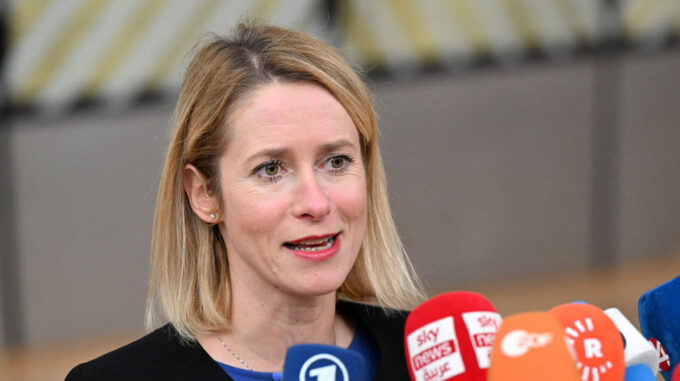The European Union has approved the 17th round of sanctions against Russia, which will become another important step in the global campaign to isolate Russia and increase pressure on its military and political regime

This decision was made on May 20 after extensive consultations and discussions within European institutions, and aims to strengthen mechanisms for economic pressure and the fight against Moscow’s hybrid threats, as well as to draw international attention to human rights violations accompanying Russia’s military aggression against Ukraine. According to EU top diplomat Kadri Simson, as announced in her social media post on X (formerly Twitter), the new sanctions package focuses on nearly 200 ships that form part of Russia’s so-called shadow fleet. These are vessels used to circumvent sanctions and conceal Kremlin’s military and logistical operations in open seas. Additionally, the measures include increased efforts to combat hybrid threats and expand restrictions related to human rights violations committed by Russian forces in occupied territories or regions under Kremlin influence. “The European Union is not stopping its course and is preparing even tougher measures against Russia,” Simson emphasized. She highlighted that any prolonged efforts by the Kremlin to continue the war lead to escalating severity and further strengthening of EU sanctions. Therefore, European countries are working tirelessly on new mechanisms to isolate and limit the capabilities of the Russian economy and military machinery. Preceding this was the ongoing preparation for the 18th sanctions package, which is being developed at the EU level. It is expected to include not only restrictions on Russian banks but also new bans targeting financial institutions from countries supporting Russia, particularly those openly cooperating with the Russian defense industry and military. This represents a crucial step in increasing economic pressure on Vladimir Putin’s regime and its oligarchic lobby. EU Commission President Ursula von der Leyen also signaled clearly on May 16 that the new sanctions package is being prepared specifically to intensify pressure on Russian financial structures. She emphasized that the EU seeks to maximize its measures against Kremlin loyalists—both economic and military—to reduce their influence and contain Russia’s regional military ambitions. It’s important to understand that the approval of the new sanctions package is just one element of the broader European policy of military and economic isolation of Russia. The EU continues to demonstrate solidarity with Ukraine and aims to provide maximum support in the fight against Russian aggression, applying increasingly broad and stringent tools of economic and diplomatic pressure. This sends a clear signal to the Kremlin and its supporters that the global community does not intend to stop in the effort to defend democracy and human rights, and that sanctions mechanisms remain a powerful tool in this ongoing process.

